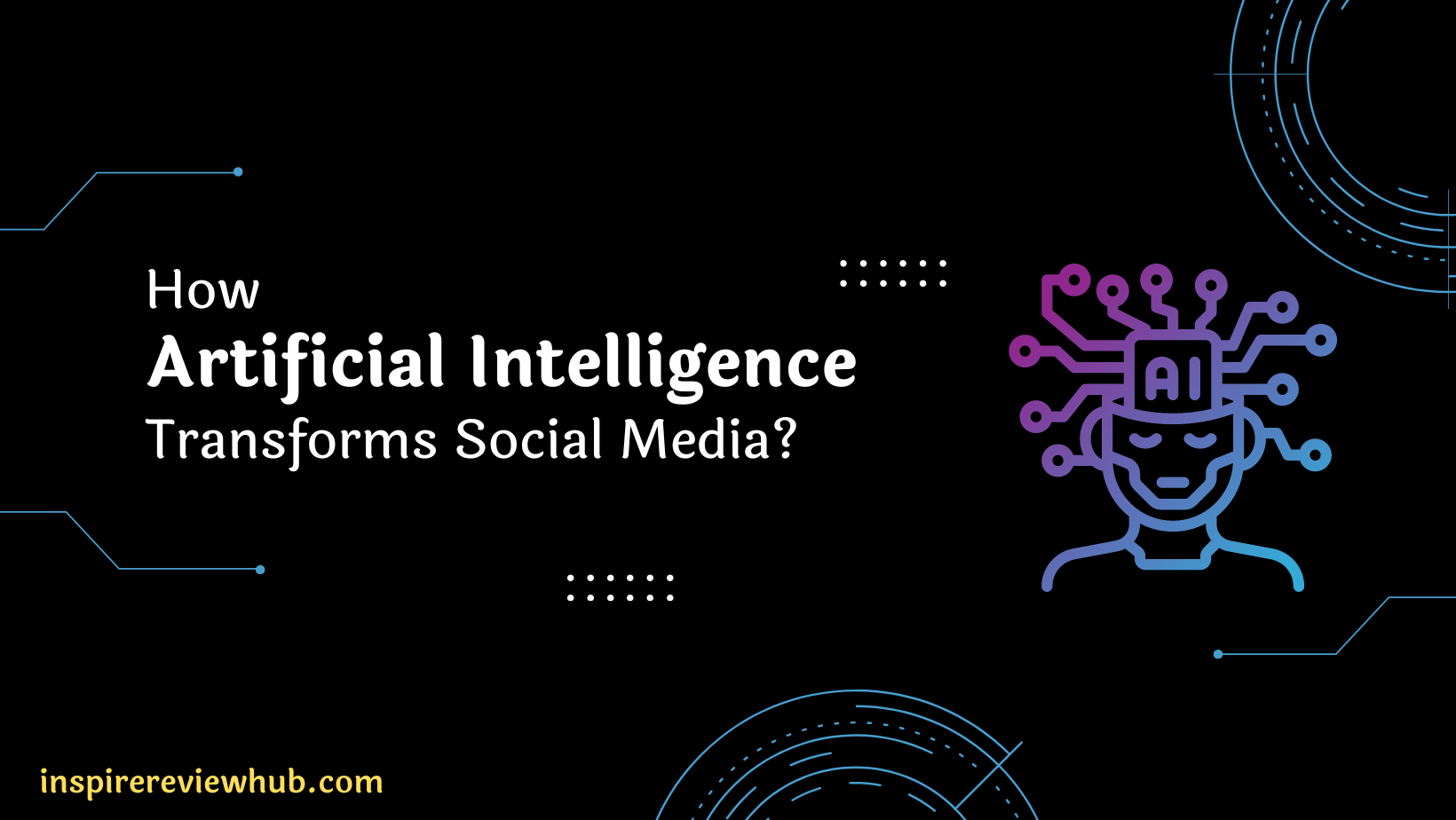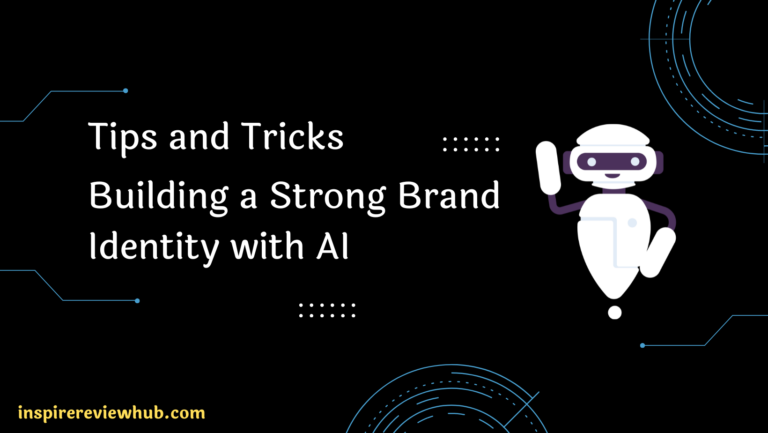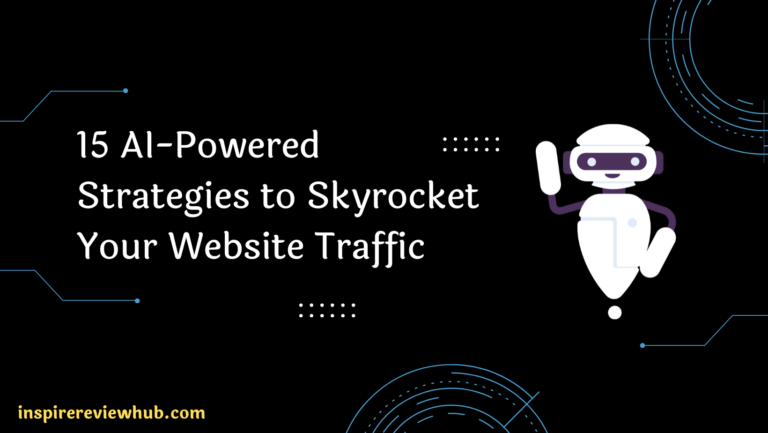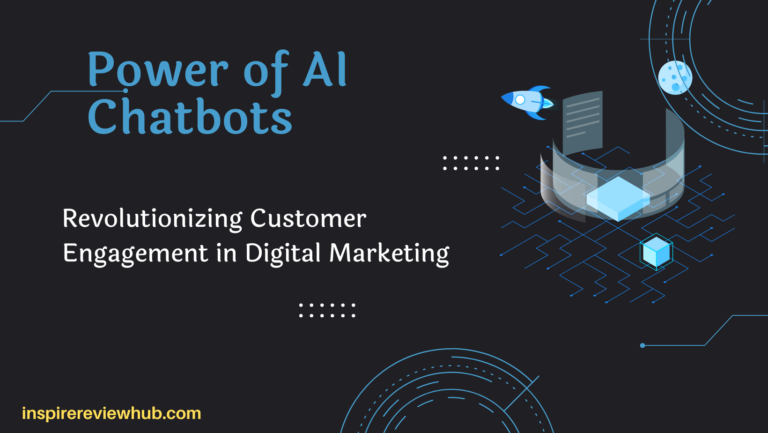How Artificial Intelligence Transforms Social Media in 2024: A Game-Changer
Social media is not an exception to how artificial intelligence (AI) has become a revolutionary force in many different businesses. AI has fundamentally changed how we communicate, consume content, and do business online in recent years. This article examines the significant influence of AI on social media, emphasizing its revolutionary potential and the advantages it offers consumers, companies, and marketers.
Introduction
Social media, which connects people from all over the world and allows for the exchange of ideas, information, and experiences, has become a vital part of our lives in the digital age. With the rise of AI, social media platforms have undergone significant transformations, empowering users with personalized content, improving user experience, and enabling businesses to leverage powerful marketing strategies. If you want to grow your business online, check out below article:- Comprehensive Systeme.io Review 2024 – it is One-Stop-Shop for Online Success
The Power of Artificial Intelligence in Social Media
AI has unleashed a new realm of possibilities in social media, enabling platforms to analyze vast amounts of data, learn from user behavior, and make intelligent predictions. By harnessing the power of AI algorithms, social media platforms can effectively tailor content, streamline operations, and enhance overall engagement. Let’s explore how AI serves as a game-changer, transforming the landscape of social media.
AI-Driven Content Creation and Curation
The production and curation of content is one of the most amazing uses of AI in social media. AI algorithms can analyze user preferences, behaviors, and interactions to generate highly personalized content recommendations. By understanding individual interests and patterns, social media platforms can deliver relevant and engaging content, keeping users hooked and fostering a sense of community.
Enhancing User Experience with AI
AI plays a pivotal role in enhancing the user experience on social media platforms. Through intelligent algorithms, platforms can customize user interfaces, optimize feed algorithms, and create intuitive navigation systems. Additionally, spam, hate speech, and improper information can be found and removed by AI algorithms, guaranteeing consumers a secure and entertaining experience.
Improved Ad Targeting
AI algorithms process user data and behavior patterns to optimize ad targeting on social media platforms. By delivering personalized advertisements tailored to individual preferences and interests, AI improves ad relevance and increases conversion rates. This benefits both advertisers and users by ensuring a more seamless and engaging advertising experience.
Image and Video Recognition
AI-based image and video recognition technologies analyze visual content shared on social media platforms. This enables automatic tagging, content moderation, and identification of specific objects or people. By enhancing content discovery and ensuring adherence to community guidelines, AI enhances the visual experience on social media.
Sentiment Analysis and Brand Monitoring
AI-powered sentiment analysis tools monitor social media conversations and detect sentiments associated with brands or products. This allows businesses to gauge public opinion, track brand reputation, and respond proactively to customer feedback. By understanding sentiment trends, businesses can adapt their strategies and build stronger relationships with their audience.
Chatbots and AI Customer Support
AI-powered chatbots have revolutionized customer support on social media platforms. These intelligent bots can provide instant responses, answer frequently asked questions, and assist users with their queries. By automating customer support, businesses can save time, improve efficiency, and deliver seamless user experiences.
Checkout this Article:- Unleashing the Power of AI Chatbots: Revolutionizing Customer Engagement in Digital Marketing
Influencer Marketing and AI
Influencer marketing has gained significant traction in recent years, and AI has further amplified its impact. AI algorithms can identify the most relevant and influential social media personalities for a given target audience. This data-driven approach helps businesses collaborate with the right influencers, ensuring maximum reach, engagement, and brand exposure.
Data Analytics and Insights
The abundance of data generated on social media platforms can be overwhelming to analyze manually. However, AI-powered analytics tools can instantly analyze and examine huge amounts of data to uncover insightful patterns. Businesses may improve their strategy, spot market possibilities, and provide superior goods or services thanks to this data-driven decision-making.
Some Ways Of Managing Social Media Risks and Ethical Considerations
In the age of social media, businesses and individuals enjoy vast opportunities for connectivity and engagement. However, with these opportunities come inherent risks and ethical considerations that must be carefully addressed. Understanding and managing these risks is crucial to ensure responsible and effective social media usage. Let’s explore some key aspects of managing social media risks and ethical considerations:
1. Privacy and Data Security:
In the digital age, data security, and user privacy are two crucial concerns. Social networking services need to take precautions to prevent unauthorized access and misuse of the personal data they acquire from numerous users. To retain confidence and prevent data breaches, businesses and people should establish strong security measures, inform consumers about privacy settings, and manage data responsibly.
2. Cyberbullying and Online Harassment:
sadly, social media platforms may develop into hubs for online abuse and bullying. To mitigate these risks, it is essential to establish and enforce strict community guidelines, empower users to report abusive behavior and provide support mechanisms for victims. In order to create a secure and encouraging social media environment, respect and inclusivity must be actively promoted.
3. Intellectual Property Rights:
Respecting intellectual property rights is paramount when using social media. To avoid violating copyright, trademark, or other intellectual property protection, both businesses and people should take care. Properly attributing content and seeking permission when necessary not only upholds ethical standards but also mitigates legal risks.
4. Misinformation and Fake News:
On both individuals and society, false information and fake news can spread quickly on social media. It is vital to promote media literacy, encourage critical thinking, and fact-check information before sharing it. Social media platforms should also employ AI-driven algorithms and human moderation to identify and combat false information effectively.
5 Best AI Tools Transforming Social Media in 2024
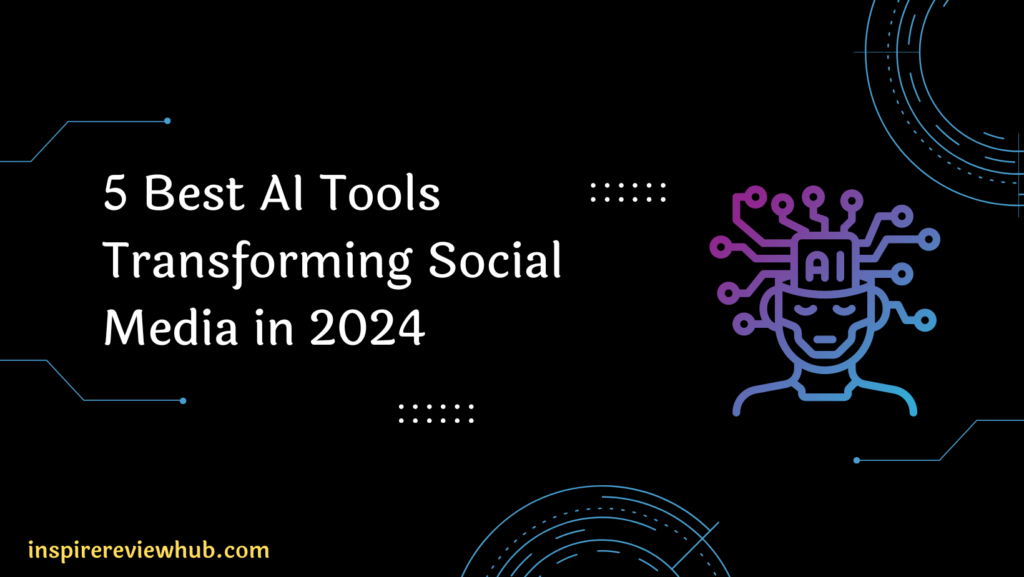
Artificial Intelligence (AI) plays a major role in transforming social media. To stay ahead in this dynamic digital age, here are five exceptional AI tools that can empower your social media strategy and deliver transformative results:-
1) Hootsuite
Hootsuite is a widely-used social media management platform that offers AI-powered features. Users may schedule and manage social media postings across several platforms with it. It also analyses social media data and improves audience engagement. It also offers AI-driven insights to optimize content performance.
2) Brandwatch
Brandwatch is an AI-powered social listening and analytics tool. It allows users to monitor and analyze social media conversations, track brand mentions, identify influencers, and gain insights into audience sentiment. The AI algorithms used in Brandwatch enable advanced data analysis and sentiment analysis for effective brand management.
3) Sprout Social
Sprout Social is another popular social media management tool that incorporates AI capabilities. It provides features for content scheduling, social listening, analytics, and customer engagement. The platform’s AI technology helps in identifying trends, suggesting optimal posting times, and providing sentiment analysis.
4) Adobe Sensei
Adobe Sensei is an AI platform that offers various AI-powered tools and features across different Adobe products, including social media marketing solutions. It provides intelligent automation, content optimization, and audience-targeting capabilities for social media campaigns. Adobe Sensei helps marketers streamline their social media efforts and enhance their overall marketing effectiveness.
5) Pixlr AI
Pixlr AI is an AI-powered image editing tool that enhances visual content for social media. With its intelligent image recognition and editing features, Pixlr AI automates complex editing tasks and offers creative suggestions. From automated background removal to smart retouching, Pixlr AI streamlines the image editing process, enabling businesses to create captivating visuals that resonate with their audience.
Conclusion
Artificial Intelligence has become a game-changer in the social media space. AI makes social media a potent tool for people, businesses, and marketers by personalizing content, improving user experiences, and optimizing marketing methods. However, it is important to address the risks and ethical considerations associated with AI implementation to ensure a responsible and inclusive digital landscape.
FAQs
1. How does AI enhance user experience on social media?
AI improves user experience on social media platforms through personalized content recommendations, intuitive interfaces, and spam detection mechanisms.
2. Can AI help businesses target their audience more effectively?
Yes, AI enables businesses to segment audiences, identify interests, and deliver targeted advertisements, resulting in more effective audience targeting.
3. How do chatbots benefit businesses on social media?
Chatbots provide instant responses, automate customer support, and assist users with their queries, saving time and improving efficiency for businesses.
4. Does AI help businesses monitor and manage their brand reputation on social media?
Yes, AI-powered sentiment analysis tools monitor social media conversations and detect sentiments associated with brands or products. Businesses can gauge public opinion, track brand reputation, and respond proactively to customer feedback, fostering stronger relationships with their audience.
5. What are some ethical considerations in implementing AI on social media platforms?
Ethical considerations include privacy concerns, algorithmic bias, and addressing the spread of misinformation, requiring ongoing efforts to ensure responsible AI implementation.
